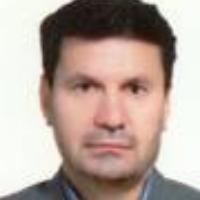Comparison of the effectiveness of metacognitive therapy in a group and individual design patients with Obsessive-Compulsive Disorder
Obsessive compulsive disorder is one of the most common psychological disorders that has a great impact on performance and quality of life of patients. The aim of this study was to investigate the effectiveness of metacognitive therapy in group and individual design on obsessive-compulsive and depressive symptoms in patients with obsessive-compulsive disorder. 30 patients with obsessive-compulsive disorder, subsequent to primary clinical assessment and obtaining study requirements were selected and randomly assigned to individual therapy (n = 10), group therapy (n = 10) and control group (n = 10). The experimental groups received 10 metacognitive therapy sessions on a weekly basis. Data collection tool was Yale Brown Obsessive Compulsive Scale (Y-BOCS) and Beck Depression Inventory (BDI-II), which was performed in pretest, posttest and one month follow up. Results showe that metacognitive therapy in group and individual design are effective in reducing of obsessive-compulsive and depression symptoms and metacognitive therapy in comparison with the control group causes significant reduction in obsessive-compulsive and depression symptoms in the patients at the post-test stage. There was no significant difference between group therapy and individual therapy. Therapeutic achievements were maintained at the follow-up stage. Based on the results of this study, metacognitive therapy is effective in the treatment of obsessive-compulsive disorder and can be used in a group and individual design to treat obsessive-compulsive disorder.
-
Identification of factors influencing domestic violence against Iranian women with Afghan immigrant spouses
Sima Mortazavi, *, Hossein Eskandari, Ahmad Borjali, Mahdi Khanjani
Journal of Psychological Sciences, -
Existential distress in palliative care of cancer patients at the end of life: a systematic review
Hossein Eskandari, , Adeleh Rezagholizadeh Shirvan, Mohammad Asgari, Neda Shahvaroughi Farahani*
Tehran University Medical Journal,


